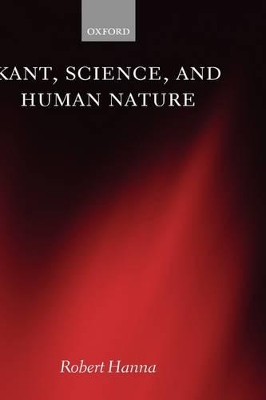Robert Hanna argues for the importance of Kant's theories of the epistemological, metaphysical, and practical foundations of the 'exact sciences'-- relegated to the dustbin of the history of philosophy for most of the 20th century.
Hanna's earlier book Kant and the Foundations of Analytic Philosophy (OUP 2001), explores basic conceptual and historical connections between Immanuel Kant's 18th-century Critical Philosophy and the tradition of mainstream analytic philosophy from Frege to Quine. The central topics of the analytic tradition in its early and middle periods were meaning and necessity. But the central theme of mainstream analytic philosophy after 1950 is scientific naturalism, which holds--to use Wilfrid
Sellars's apt phrase--that 'science is the measure of all things'. This type of naturalism is explicitly reductive. Kant, Science, and Human Nature has two aims, one negative and one positive. Its negative aim is to develop a Kantian critique of scientific naturalism. But its positive and more fundamental
aim is to work out the elements of a humane, realistic, and nonreductive Kantian account of the foundations of the exact sciences. According to this account, the essential properties of the natural world are directly knowable through human sense perception (empirical realism), and practical reason is both explanatorily and ontologically prior to theoretical reason (the primacy of the practical).
- ISBN10 0199285543
- ISBN13 9780199285549
- Publish Date 19 October 2006 (first published 1 January 2006)
- Publish Status Active
- Publish Country GB
- Publisher Oxford University Press
- Imprint Clarendon Press
- Format Hardcover
- Pages 504
- Language English
